Despite Singapore's regional concert hub status, more fans are flying out to catch live shows overseas
From sold-out arenas to far-flung festivals, concert tourism is emerging as a leading trend. As ticket prices and travel costs continue to rise, why are more fans willing to cross borders for these live experiences?
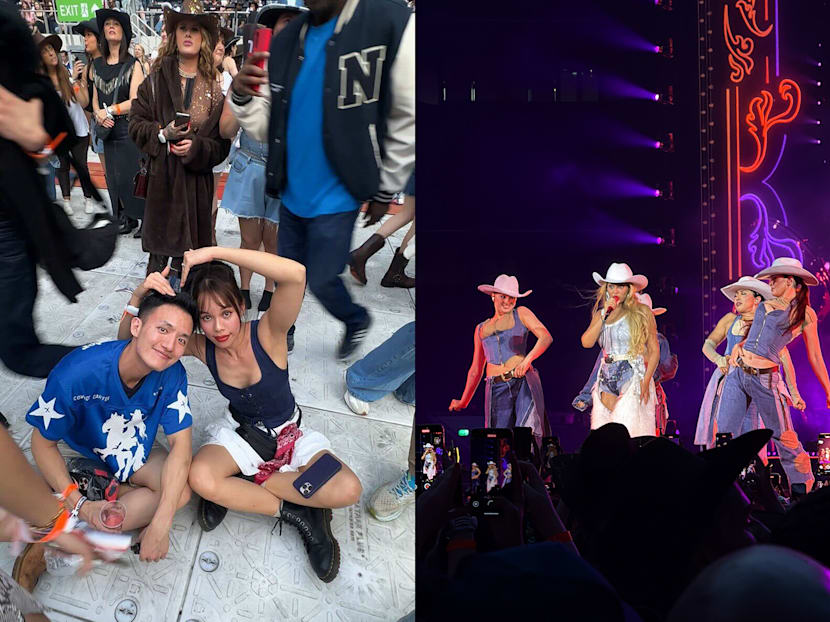
Ms Lee Su Fang and her fiance Joel Tan at a Beyonce concert in London in June 2025. (Photos: Lee Su Fang)

This audio is generated by an AI tool.
For content lead Feng Ying, travel plans don't begin with flight deals or sightseeing lists. They start with a tour announcement.
This year alone, the 36-year-old has flown to 13 of her favourite K-pop group's concert stops across Asia, from Taipei and Macau to Seoul.
"The last time NCT 127 came to Singapore was 2022," she said. "I can’t afford to wait for them to come here. I have to go to them instead."
This kind of devotion might once have seemed extreme, but today it’s emblematic of a rising trend across the region: the practice of travelling abroad specifically to attend live music events.
According to Trip.com's Momentum 2025 Report, nearly half of Singaporean travellers (47 per cent) have planned a vacation around concerts.
Across the Asia Pacific, the figure rises to two-thirds (66 per cent), signalling that the current wave of concert tourism – also known as "gig-tripping" – cuts across borders.
Tourism experts say this reflects a shift towards an experience economy, one driven by FOMO (fear of missing out), amplified through social media.
WHY THE SURGE IN CONCERT TOURISM?
Given that travelling for live shows is hardly a new concept, why are industry watchers now seeing a marked rise in global trends of people doing so?
Mr Benjamin Cassim, a senior lecturer at Temasek Polytechnic's School of Business, chalks it up to a post-COVID surge in "pent-up demand for experiences that support emotional and physical well-being".
"This translated into greater leisure travel and higher participation in live entertainment events."
For self-employed baker Lee Su Fang, that post-pandemic urge has only deepened her love of travelling for concerts – something she's been doing since 2016.
Most recently, the 29-year-old saw Beyonce and Charli XCX live in London in June. Last year, she attended Primavera Sound in Barcelona, Spain, a music festival headlined by Lana Del Rey, SZA and Mitski, among others.
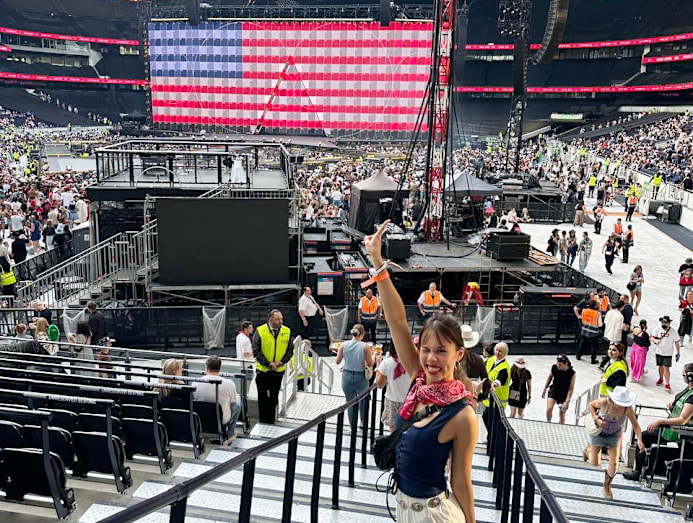
"The acts I catch overseas (probably will not) come to Singapore for a concert," said Ms Lee. "Especially when it comes to big music festivals, the lineup can’t be replicated with the exact same artists, so I view them as once-in-a-lifetime opportunities worth the travel costs."
These trips, she added, aren't just about the music, but the mood.
"It really hits different when you’re on a post-concert high trying to find a kebab spot at 2am in Amsterdam, versus driving home after a concert and going to work early the next morning in Singapore."
Such experience-led travel has become a defining feature of post-pandemic tourism.
Ms Alice Tan, a senior lecturer on hospitality and tourism management from Nanyang Polytechnic's School of Business Management (NYP), calls it the rise of the "concert-cation".
"The entire trip revolves around a specific concert, from flight itinerary – flying in and out just in time, to hotel location – being near the concert venue, to squeezing in small spots of local sightseeing, shopping and F&B (food and beverage), based on available time," she said.
This marks a shift from earlier travel patterns, when holidays were typically centred on sightseeing or visits to cultural landmarks and attractions.
Fans like Ms Feng are part of a broader "K-Pop pilgrimage" movement, Ms Tan said, one that sees loyal devotees travel across the region to support their favourite groups, often attending multiple shows on the same tour.
In the digital age, social media plays a major role in fuelling the trend. Fans don't just share snippets of the concert, but document the entire journey, from the ticket scramble and travel planning to the show day and post-concert experiences.
This wave of user-generated content, she added, has helped amplify the appeal of gig-tripping – especially among younger travellers, who are far more likely to prioritise experiences over possessions.
According to Klook's Travel Pulse 2025 report, 91 per cent of Gen Zers and millennials are willing to dedicate up to half of their overall travel budgets to experiences. In contrast, industry trends show older travellers focusing more on comfort, accommodation and convenience.
"For (young people), a concert isn’t just entertainment. It’s a cultural milestone," said Ms Sarah Wan, general manager for Klook Singapore, Indonesia and Malaysia.
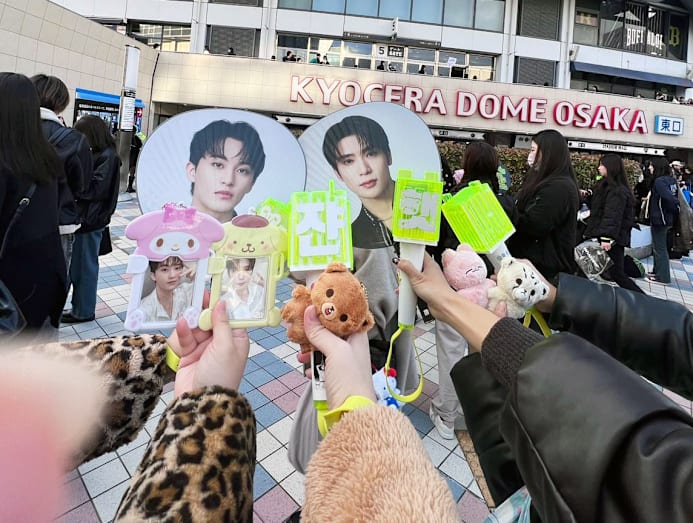
THE EFFORT BEHIND THE EXPERIENCE
With no remote-work option, every day off is precious for communications manager Clare Tan, 36. But that hasn't stopped her from jetting across the globe up to five times a year for festivals and arena shows.
Just within the last two years, she has visited Australia, Belgium, Indonesia, Japan, The Netherlands, South Korea, Spain and more, all with the primary purpose of seeing artists such as Muse and Lorde perform live.
Planning such trips, she said, is a careful balance between snagging tickets before they sell out and figuring out how many days she can afford to take off work.
"I'll usually plan a whole holiday around (a concert)," she said. "If I suddenly want to do another trip, I'll wing it and pray all the stars align."
She's not alone: A 2024 global survey by travel consultancy Collinson found that 78 per cent of music tourists who travel internationally for live shows extend their stays.
Still, Ms Tan is selective about which concerts are worth the splurge. She draws the line "if it doesn't make any financial sense" – for example, if a flight costs S$200 to S$300 more than it usually does.
She estimates that on average, a three-day-two-night trip within Asia would cost her around S$500 to S$600, while longer hauls can reach S$3,000 to S$4,000.
Like Ms Tan, more and more are jumping onto the concert tourism trend even as costs soar.
Ticket prices for live shows have risen sharply in recent years with the advent of dynamic pricing, with top artists such as Beyonce and Taylor Swift commanding prices of over US$1,000 per ticket due to high demand.
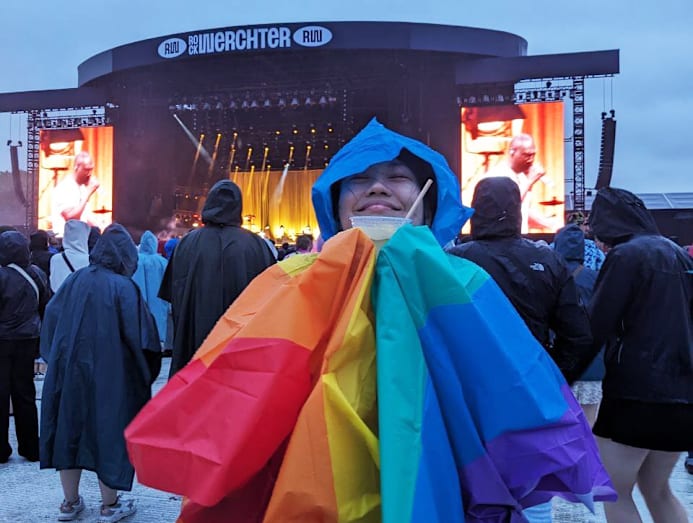
But even with no concerts on the itinerary, travel itself now costs more for everyone.
Hotel rates in major destinations have reached multi-year highs. Higher fuel, maintenance and supply-chain costs continue to keep airline prices elevated, and industry players say they're unlikely to return to pre-pandemic levels.
Nevertheless, in the battle between experience exclusivity and climbing costs, it seems that the former appears to be winning out for die-hard concert tourists at the moment – especially when tour stops are limited, said Ms Wan from Klook.
Trip.com's Momentum survey also found that 54 per cent of respondents are open to visiting remote or lesser known cities for cheaper concert tickets.
"Sometimes (concert tourists may even find) it more cost-effective than paying premium ticket prices at home," said Ms Wan.
WORTH THE HASSLE?
Between racing for increasingly expensive show tickets, juggling annual leave constraints and scrambling for last-minute flights, travelling overseas for concerts may not be the most relaxing holiday habit.
It's a hassle that can be seen as unnecessary by some, especially when one considers Singapore's own rise as a regional concert hub.
Despite the Republic commanding the touring interest of global superstars such as Lady Gaga and Coldplay, some fans say that it remains hard for local live shows to replicate the atmosphere and ambience of their overseas counterparts.
Ms Nicole Chan, 29, who travelled to see Beyonce perform in Amsterdam in 2023 and in London in 2025, said that outside of Singapore, concert crowds tend to be more "involved and engaged".
Festivals overseas also typically have larger concert grounds and are generally able to operate on a larger scale that Singapore cannot match, in her view.
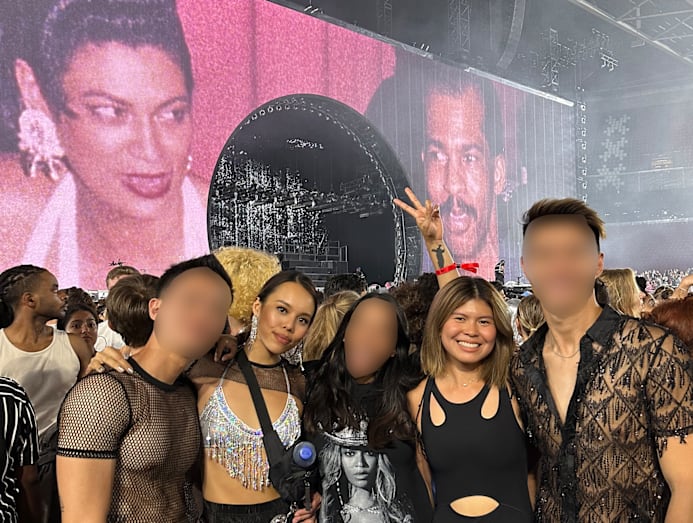
"Each country has different concert cultures, not to mention some have better pyrotechnics or fireworks," said Mr Mark Ng, 28, a marketing manager who has flown to watch DJ sets in Malaysia, Australia, Indonesia and Thailand.
“Singaporeans are well-behaved, and that’s great for a safe, sanitised concert experience," he added. "But sometimes I want to burst out of my seat and jump a bit more."
That shared energy often turns concert trips into something more social, even for solo travellers.
Ms Feng said she has made lasting friendships with fellow fans she met at concerts.
"Most concerts in South Korea will only let you buy one ticket per account, so a lot of (us) are sitting by ourselves," she said. "Sometimes we'll strike up a conversation and even chat throughout (the show)."
Fellow concert traveller Rian Fatullah, 37, has also found community while on the road to see her favourite K-pop idols perform live.
In 2017, she made friends with a seatmate at a BTS concert she attended in Seoul. Two years later, that seatmate helped her get tickets for another BTS show in the same city.
CONCERT TOURISM IS HERE TO STAY
Tourism experts say this wave of concert-driven travel isn't a temporary rebound, but part of a broader cultural shift.
Millennial and Gen Z consumers' preference for spending on experiences over material goods is a "generational value shift", rather than a temporary fad, says Ms Tan of NYP.
For Ms Fatullah, who most recently flew to Jakarta, Indonesia to catch rock band Muse perform live in September, concert tourism has also become a form of self-care.
"People prioritise spending on different things," she said. "You might buy that Chanel bag; I spend my money on concerts and experiences instead."
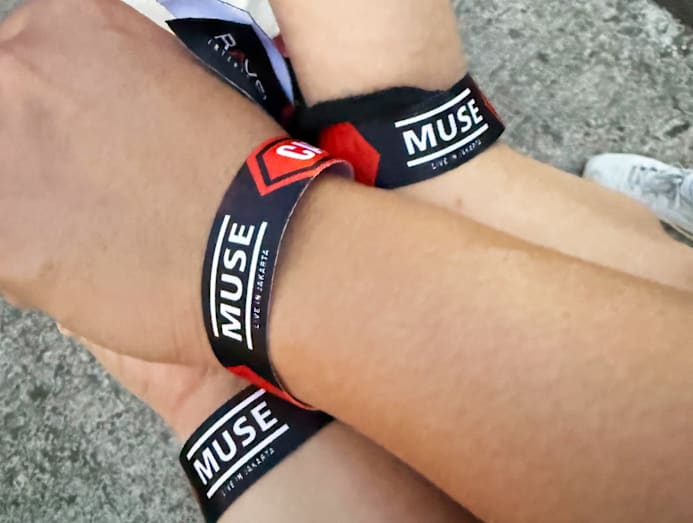
Market research firm Grand View Research projects that the global music tourism market is growing at an annual rate of 18.8 per cent. Valued at about US$96.78 billion in 2024, that figure could swell to US$267.85 billion by 2030.
Industry players are responding fast.
At Klook, concert packages now combine tickets with hotels, airport transfers, and curated dining experiences. Trip.com's "Hotel Rooms Plus X" concept, launched during the COVID period, allows travellers to customise hotel stays with add-ons such as concerts, exhibitions and spa sessions.
Even airlines are jumping on the bandwagon. In January 2024, AirAsia MOVE launched ticketing arm MOVETIX to integrate live event sales with travel bookings, with the aim of making gig-tripping as "seamless as possible", said chief executive officer Hassan Choudhury.
Bells and whistles aside, for avid concert tourists like Ms Feng, the motivation remains simple: connection to her idols.
"I have to go everywhere (NCT 127 is) performing," she said.
"I even bought tickets to Waterbomb Hong Kong in October 2025 to see them, even though it's just a 40-minute set – and I hate going to festivals, being outdoors and being pelted by water." (Earlier this week, the festival announced its postponement due to Typhoon Ragasa.)
Her dedication and that of thousands of fans across the region speaks to something larger than entertainment – a generation chasing moments that can't be streamed or replayed.
"Nothing beats being at the first (tour) stop and watching the concert with no spoilers," she said.
"The collective reactions of everyone watching it together for the first time – that's what makes it worth it."










